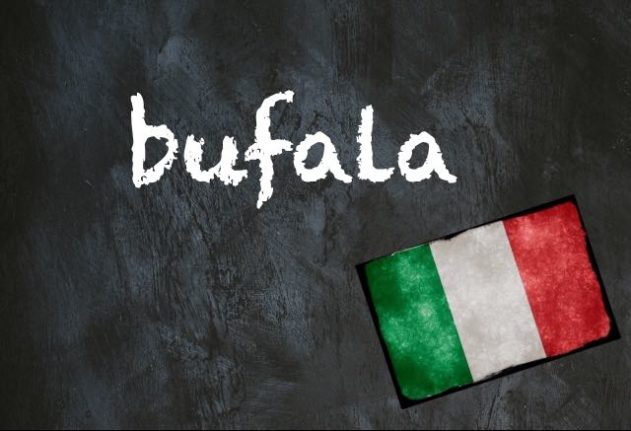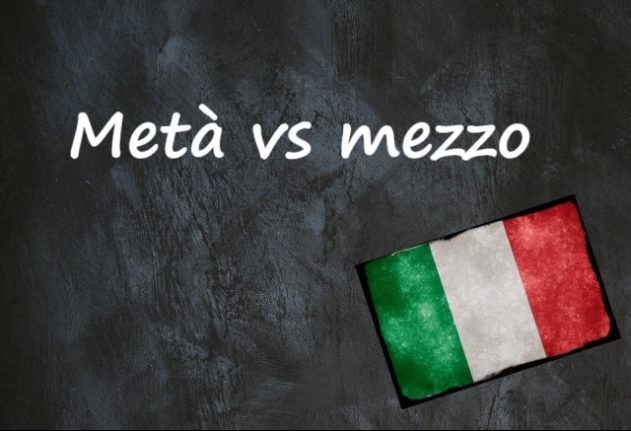If you encounter the word bufala at your local market or delicatessen, it’ll probably be on the labelling of a type of cheese. But that’s not the only place you’ll see it.
Mozzarella di bufala is made with milk from a female buffalo (bufala – pronunciation here), which makes it particularly creamy, and more expensive than ordinary mozzarella.
Outside of culinary contexts, however, the word bufala means something else entirely – it’s a hoax, a scam, or fake news.
Non essere così ingenuo, è ovvio che si tratta di una bufala.
Don’t be so gullible, it’s obviously a hoax.
La bufala è stata ampiamente condivisa sui social.
The fake news was widely shared on social media.

So how did bufala become the Italian word for hoax?
There a couple of theories, neither of which have been proven – though it’s generally believed that the current use of the term originated in Rome.
One is that dishonest Roman restauranteurs would try to scam their patrons by passing off bufala meat as the more prized – and expensive – vitello (veal).
Another comes from the 1866 edition of the Vocabolario degli Accademici della Crusca – Italy’s first dictionary, created in 1612 by a Florence-based society of scholars.
The 19th century tome says the phrase “to lead others by the nose like a buffalo (‘menare altrui pel naso come un bufalo/una bufala’) at the time meant ‘to trick someone’.
This leads some to believe that bufala came to mean someone who is obtuse and easily misled, and eventually to mean the trick or falsehood itself.
Though it’s much more rare, you might occasionally see bufala used to mean ‘blunder’ (like abbaglio).
Si tratta di un’altra bufala, questa volta più grave.
It’s another blunder, this time more serious.
And in the Rome area specifically, a bufala can also be used to describe a particularly shoddy, poorly produced film.
– Hai visto il nuovo film di cui parlava Enzo?
– Sì, è stata una bufala!
– Did you see that new film Enzo was talking about?
– Yes, it was rubbish!
Now you know what to look out for in Italian as well as English, you can stay extra wise to those hoaxers.
Do you have an Italian word you’d like us to feature? If so, please email us with your suggestion.



 Please whitelist us to continue reading.
Please whitelist us to continue reading.
Member comments